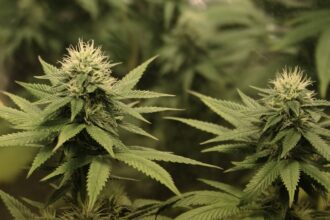

Susannah Fox remembers Tom Ferguson, MD who coined the term “participatory medicine”. Dr Ferguson passed away in 2006 but not before “ePatient” became adopted by bloggers and those involved in health care social media. The “e” relates to “engagement” rather than ‘electronic’.
Think, for a moment, about the puzzle pieces of your own life. Think about the pieces you know well and the ones whose edges are blurry or indistinct.
Now think about how a clinician might view your life’s puzzle. How can you help them to see how the pieces fit together? Which pieces do you want to keep private and even hide from view, because they are too personal or scary or embarrassing to reveal? What self-knowledge do you wish you had and do you want to share it with anyone other than yourself?
These are the sorts of questions that the Pew Internet Project and California HealthCare Foundationconsidered as we went into the field with our latest health survey. I’ll give you a sneak preview of the results related to engagement, because I think our field is moving too fast for me to wait for publication.
We found that 60% of American adults track their weight, diet, or exercise routine. One-third of American adults track health indicators or symptoms, like blood pressure, blood sugar, headaches, or sleep patterns. One-third of caregivers – people caring for a loved one, usually an adult family member – say they track a health indicator for their loved one.
Putting that all together, 7 in 10 American adults are self-trackers.
But guess what? Half of them are tracking “in their heads.” These are my people. I’m calling this group the “skinny jeans trackers.”
In addition:
One-third of self-trackers use a notebook or journal.
One-fifth of self-trackers use an app, a device, a spreadsheet, or a website.
Half track on a regular basis
The other half track when something changes, when something comes up and triggers the need to track.
Given the rise of smartphones and online tools, should we expect to see the percentage of self-trackers
go up? Should it be our goal to see 100% participation in self-tracking among people living with chronic conditions? What about among caregivers? And the general public?
Mobile health apps provide a great opportunity for self-trackers. Many will purchase these devices and software with curiosity and the current popular culture of healthcare technology. The big question is whether this will be a permanent integrated habit.
Which brings us to the topic of sharing in general.
What’s the future for self-tracking?
Adult Gadget Ownership over Time
/~/media/Infographics/Report%20Infographics/2012/16%20-%20Digital%20differences/Gadget%20ownership%20over%20time.jpg?w=530&h=452&as=1)
/~/media/Infographics/Trend%20Data/Sept%202012/Cell%20phone%20and%20smartphone%20ownership%20over%20time.jpg?w=469&h=384&as=1)
I was surprised to learn how many people track data already. Much of it is manual or kept in ‘heads’. Will HIT and mHealth automate this project without conscious interaction at some point. Will minute tattooed sensors replace blood pressure cuffs, and glucometers, or pulse oximeters. Surely we are only at the beginning of mHealth.








